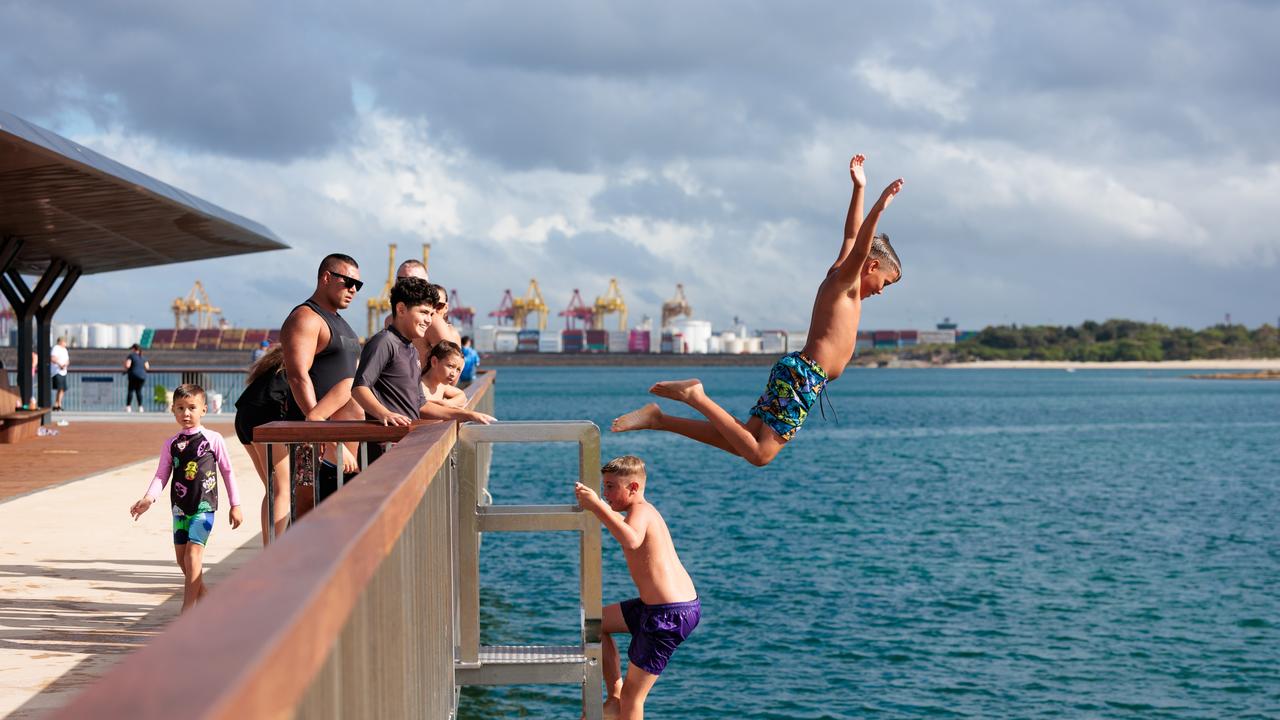Port of Newcastle Climate activists risking lives and an oil ‘catastrophe’
Climate protesters’ application to gather at the Port of Newcastle was dropped at the eleventh hour, as the port authority warns protests could create an environmental disaster and a pose significant risk to life.
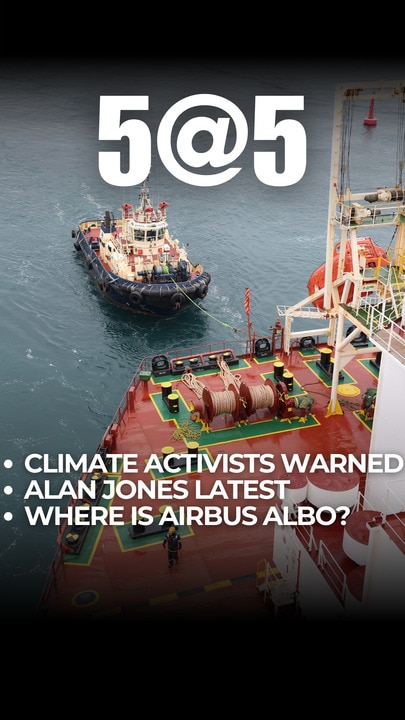
NSW
Don't miss out on the headlines from NSW. Followed categories will be added to My News.
Climate protesters planning to blockade the state’s busiest port this week will risk an environmental catastrophe and a significant risk to life if they enter the shipping lane, Port authorities have warned.
The Daily Telegraph was granted unprecedented access to the Port of Newcastle to see first hand the significant risk to the lives of ship crews and protesters as well as the high potential for catastrophic oil spills should protesters unexpectedly enter the shipping lane.
This comes as the Climate activist group Rising Tide was set to return to the Supreme Court on Wednesday seeking new last minute permissions to host a protest on the foreshore near the port after the NSW government placed an exclusion zone around the area.
The exclusion would mean protesters would be arrested if they access the water.
However, in a surprise twist, the Commissioner of Police’s bid to halt the climate activist group’s efforts to get last minute permission to host a protest on the foreshore near the port has been discontinued due to protest organisers dropping the application.
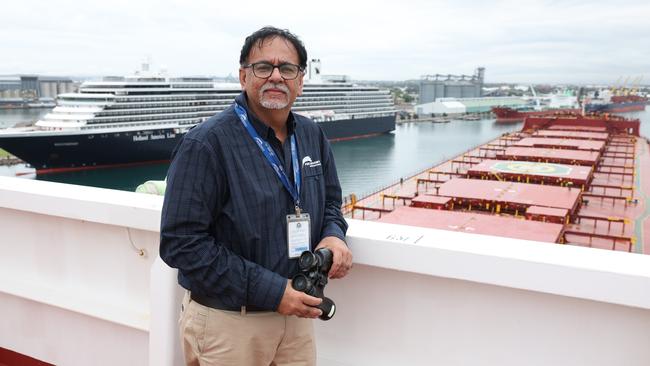
The Supreme Court sent an email on Wednesday morning saying the action had been discontinued.
Rising Tide protesters are currently at NSW transport minister Jo Haylen’s electorate office demanding that exclusion zone be rescinded, describing it as an “extraordinary overreach of ministerial powers”.
Group spokeswoman Alexa Stuart told The Daily Telegraph hundreds of people had arrived at the protest headquarters in Newcastle since yesterday, with workshops, discussions, music, vinyasa yoga and social activities among the programming so far.
The group withdrew their form one application – which provides additional legal protections to protesters – but still intends to protest on the foreshore.
“It remains completely legal for us to gather and protest on the beach,” Ms Stuart said.
“People that go on the water, even to swim or kayak, may be asked to leave – we view this as a massive overreach and we're calling on the minister to revoke the exclusion order.
“This is quite an extraordinary use of police powers we haven’t really seen before.”
Earlier on Tuesday protest organisers refused to rule out blockading the coal port despite port authorities warning an unexpected blockade would put both lives and the environment at significant risk.
RISK TO SAFETY AND THE ENVIRONMENT
Newcastle Harbour Master Captain Vikas Bangia said the likelihood of an oil spill within the port was extremely high should protesters enter the shipping channel.
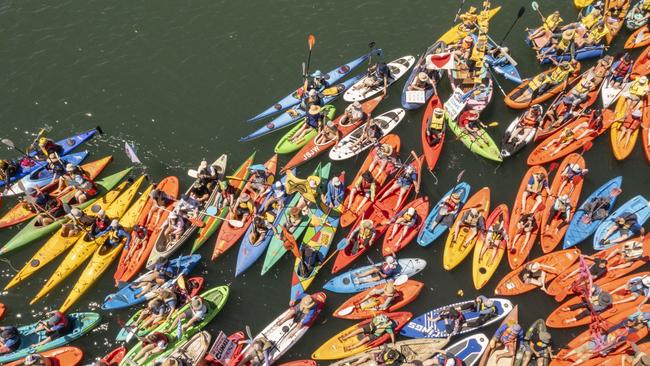
Due to the vast weight of the nearly 90,000 tonne freighters, it is impossible for the ships to be stopped once they are moving. Captain Bangia said any act of attempting to use tug boats to prevent the ship from moving forward could see the freighter grounded in the shallow waters near the channel, with a high potential of breaching the ship’s fuel casing.
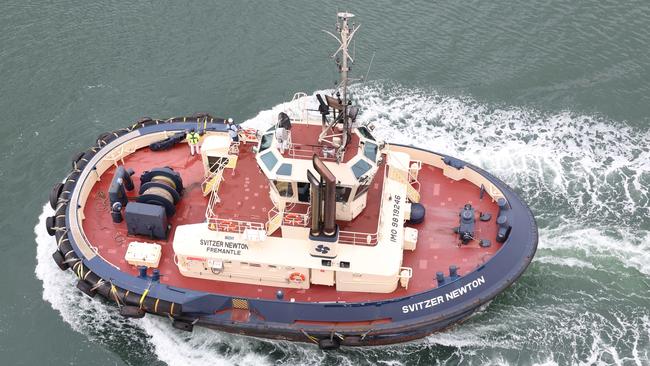
Additionally, the entrance to the Port of Newcastle is only 180 metres wide, with only 120 metres of water deep enough for a freighter to go through, meaning ships cannot be turned around.
In the likely instance that tug boats are required to attempt to hold a ship from moving forward, Captain Bangia said there was a high risk protesters on canoes could be sucked into a ship’s propeller or squashed between a tugboat and a massive freighter.
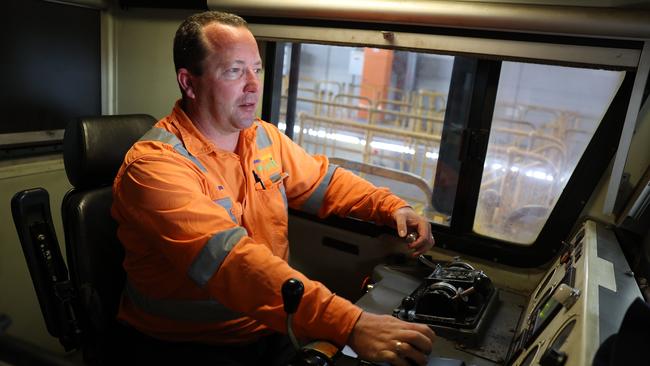
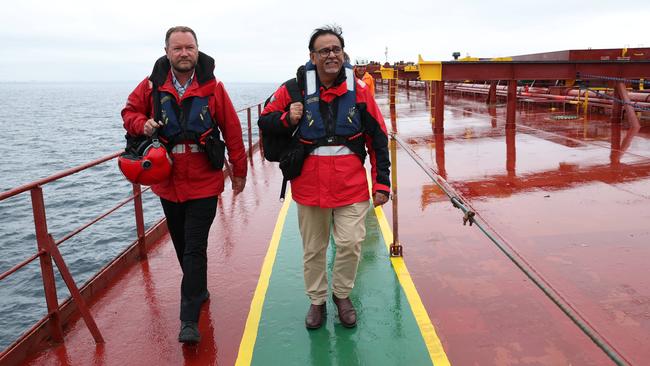
“If protesters appear we have seconds to hold the ship and I can’t stop ships due to the weight,” he said.
“It’s very dangerous because our radars don’t pick up kayaks in the water – we can’t even see them.
“If I hold the ship and within two hours the tide is falling she could touch the bottom and it could get grounded
“She may not refloat again – it may have a spill, it’s full of oil and then we are dealing with an environmental catastrophe.”
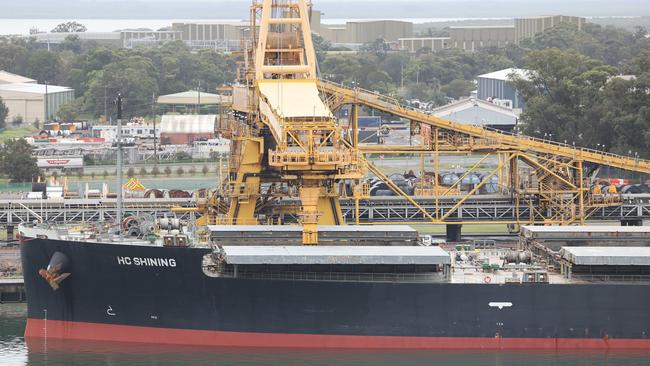
The group originally said they intended to blockade the port for three days before their application was rejected by the Supreme Court this month. This order was defied by the Newcastle Council who on Tuesday offered the group a new event permit at Foreshore Park. The Port of Newcastle contributes $48 billion to the Australian economy per year, which equates to nearly $400 million over three days.
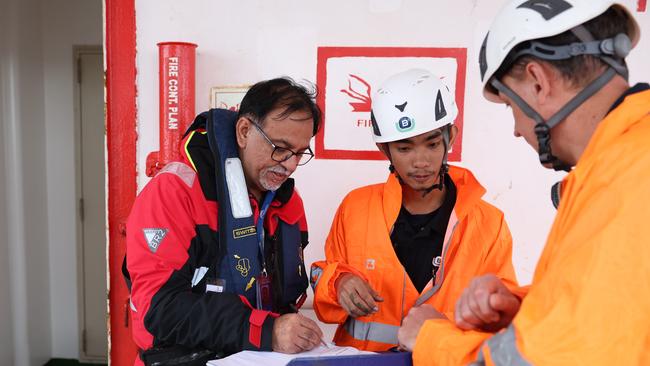
In response to safety concerns Rising Tide organiser Zack Schofield said the port should suspend all shipping movements until the protest had finished.
“We intended to follow our planned program as much as possible – our original planned program included an on-water flotilla from Friday to Sunday,” he said.
“Whatever we do we will make sure we will facilitate it as safely as possible.”
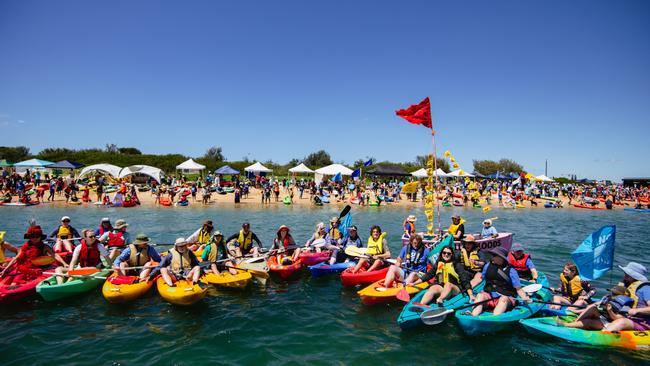
Police Minister Yasmin Catley said the event was too dangerous to go ahead and criticised Newcastle council for approving the event permit.
“Police assessed this every year for the last decade and agreed to it going ahead – this year they said it is just too big and too dangerous,” she said
“On Friday afternoon the police appealed to the Council to revoke the permit on safety grounds.
“This week Council did but issued a new permit for Foreshore Park. It beggars belief. Council seems to be encouraging people to swarm into this area and try to get onto the water.”
Do you have a story for The Daily Telegraph? Message 0481 056 618 or email tips@dailytelegraph.com.au



